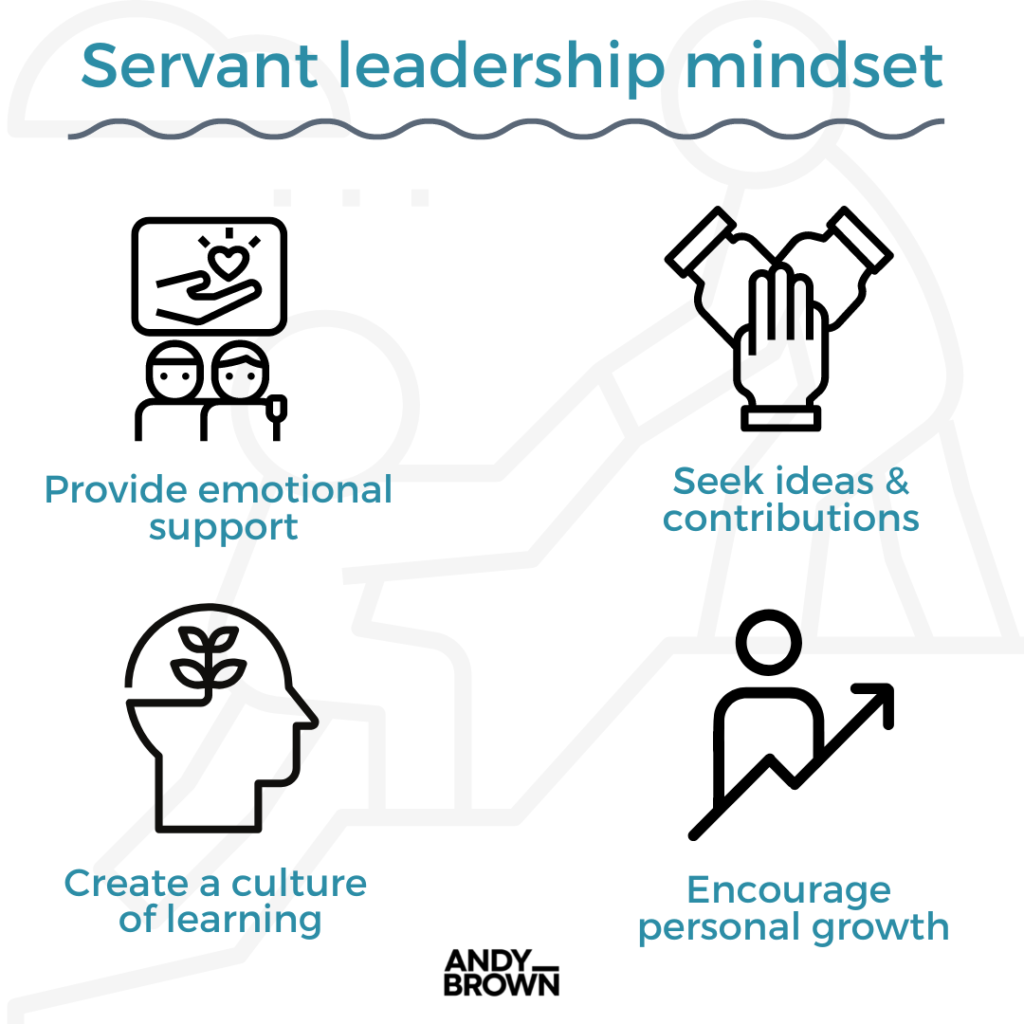“If serving is below you, then leadership is beyond you” – Bishop Dale Bronner
I’m forever reiterating to leaders I work with about the benefits of servant leadership. As an article in Harvard business Review pointed out, ‘By focusing too much on control and end goals, and not enough on their people, leaders are making it more difficult to achieve their own desired outcomes.’
I’m reminded of something someone said to me many years ago, “When you’re walking at the front, it’s difficult to see what’s behind you’.
Servant leadership – in case you’re unsure – focuses primarily on the growth and well-being of people and the communities to which they belong. Traditional leadership generally involves the exercise of power by one at the “top of the pyramid,” servant leadership is different. A servant-leader shares power, puts the needs of others first and helps people develop and perform as highly as possible.
Being a servant leader requires a certain mindset and asks that you provide the following:
- Emotional support
- Seek out ideas and contributions
- Create a culture of learning
- Encourage personal growth

If you want to help individuals and teams feel purposeful, motivated, and energised so they can bring their best selves to work, then adopting a servant leadership mindset is – in my mind at least – one of the very best ways to do it.
One of the easiest ways to find out if you’re adopting a servant style of leadership is to ask the people in your team the following questions:
- Do they feel they are contributing to the business?
- Is their opinion being sought?
- Do they feel they have career development opportunities in the organisation?
- Do they fear failure or see it as an opportunity to learn?
- Do they feel they are developing as individuals?
- And, the killer question – to they feel they have the authority and autonomy to make their own decisions?
It’s important to understand you cannot make people more autonomous, rather they will become autonomous if they’re given the space to grow and think for themselves.
Using the checklist above, you can flip the answers to these questions and turn them into action points for solutions. If no one in the organisation feels their opinions are being sought after, then ask yourself ‘how can I provide the space for this to happen?’, if they cannot see a path of development then make this a priority to devise a clear strategy for each individual.
Autonomous teams who do not fear failure will ask questions you haven’t thought about, they will be proactive, do more than is expected and generally supercharge your business into something greater than it was before.
Is 2023 going to be the year you focus on servant leadership?
Andy.